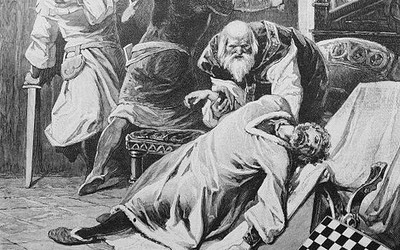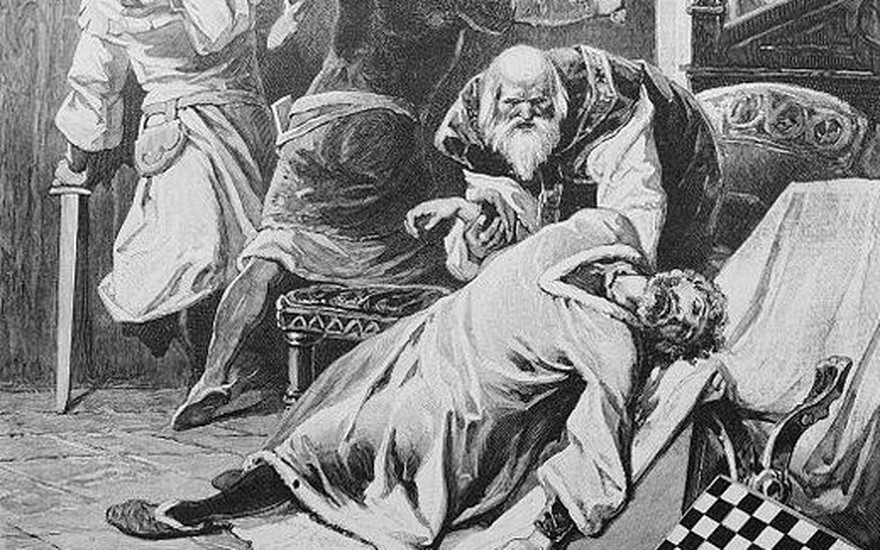
Loose Pieces Die and how to train against Blunders
LPDO - Loose pieces drop off and a cure.John Nunn in his book "Secrets of Practical Chess" has spread the mnemonic "Loose pieces drop off" and the corresponding abbreviation LPDO. In the English-speaking chess world this is a common abbreviation.
I like to put it somewhat harder: Loose pieces die. In the book Nunn says that this also applies to fairly high-class players, he talks about a rapid game competition over 100 games with a 2300 player and all that mattered was LPDO.
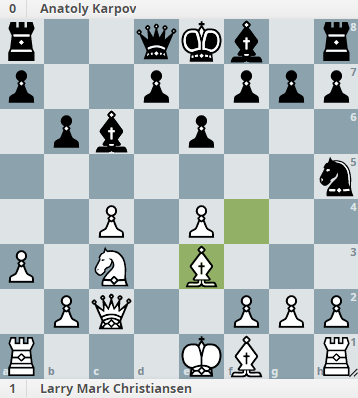
The diagram shows an example from a game of Larry Christiansen - Anatoly Karpov, played in Wijk aan Zee in 1993. Karpov, who was FIDE World Champion from 1993-1999, moved Ld6 here, and after Christiansen's next move Karpov resigned. Can you find the move? Hint: First find all of Karpov's uncovered pieces.
Of course, not all uncovered pieces always die. But often, often they fall victim to tactics. The own as well as the foreign ones.
For every chess player of any strength it is therefore absolutely advantageous to know where the uncovered pieces are at every move. The enemy's as well as your own.
How do you train to see loose pieces?
For a long time I was looking for a method how to train just that: Seeing loose pieces. And I found it.
There is the Loose-Piece-o-Tron on the net.
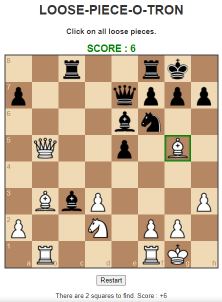
It's very simple: you are presented with a position and you just have to click on all the uncovered pieces and pawns. At the beginning, a time runs down at the top, but you can safely ignore it. As soon as you have exceeded the time, it stops, and you can then simply continue without time and without stress.
At the bottom you can always see how many uncovered pieces and pawns are still missing in this position. And when you have found them all, the next position appears.
You don't need to register or login and there is no advertising on the site.
Are you looking for a coach or trainer? I coach players with a Lichess-Rapid rating of less than 1750 in German or English and for not much money.
More blog posts by Alakaluf
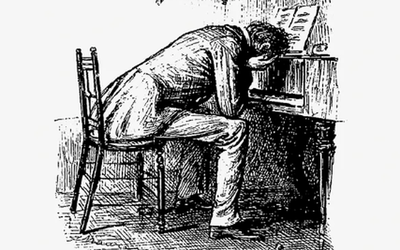
Chessvis - eine besondere Schach-App
Chessvis - eine andere und hervorragende Schach-App
The Keizer-System for Club Tournaments
The Keizer system can replace swiss system and full round robin tournament system in clubs and has s…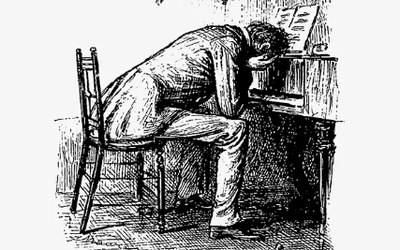
Chessvis - a different Chess App
Chessvis - a different and outstanding Chess App